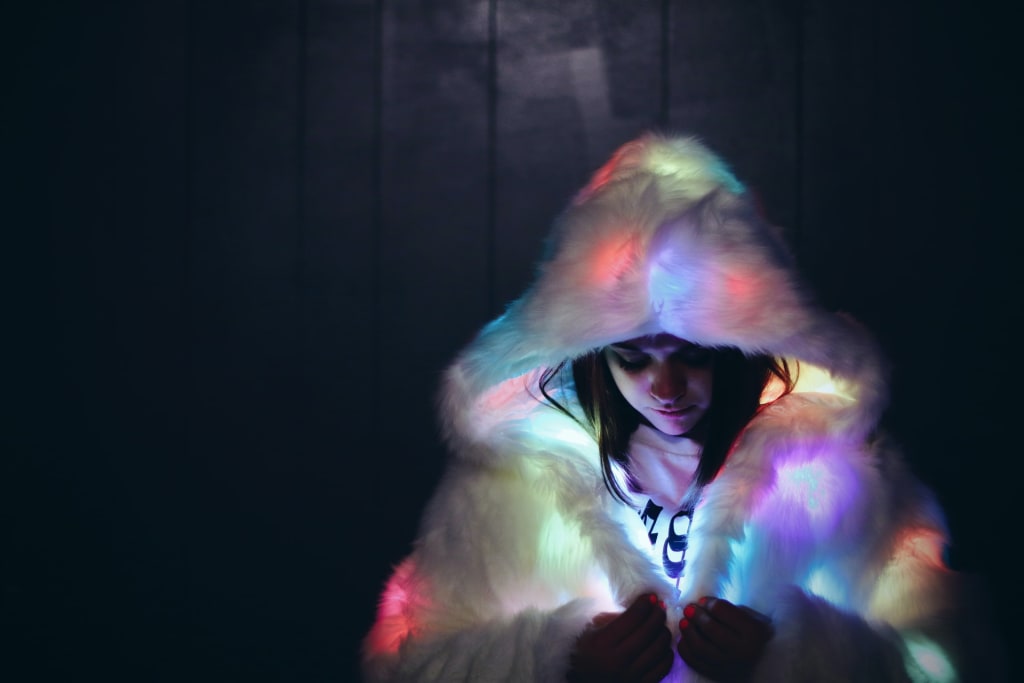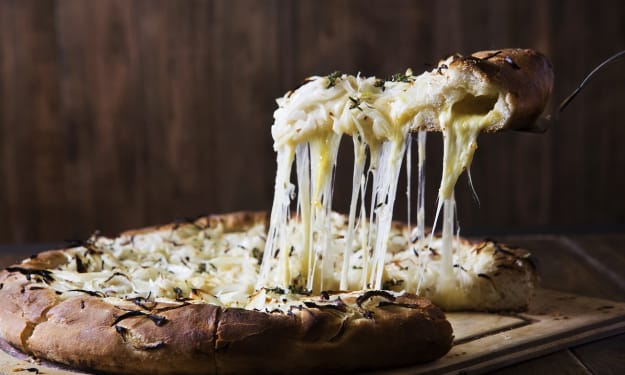
For someone with anxiety, a single insignificant bad news builds upon itself and turns into a string of anxious thoughts that’s impossible to shake off. It doesn’t matter if the situation affects me directly, indirectly, or not at all, it will live rent-free in my head and consume me until I’m paralyzed with fear and worry.
The harrowing events of 2020 gave me a lifetime’s worth of anxious thoughts. Deaths, disasters, and THAT virus dominated the headlines, which means they also occupied my thoughts every waking moment.
The problem with anxiety is that as soon as one anxious thought is resolved, another one comes to take its place. It’s a never-ending cycle that puts you in a constant state of stress.
Anxious thoughts are extremely exhausting that I lost the energy and the zeal to do anything else. Over the years, I’ve learned how to manage my anxiety and I’ve reached a point where I could actually get out of the house without overthinking the process of going out of the house (If that even makes sense).
But with the pandemic in full swing, part of my daily routine was just waiting for the next big tragedy to happen.
And tragedy struck. As a freelancer, I have four income streams. I lost three of them just days apart. I was left with bills that I could no longer pay for. With debt collectors hounding me left and right, my anxiety level was through the roof.
As days passed, it became clear that the pandemic turned me into a blithering basket case. It reached a point where it became extremely difficult to work and to exist. I lost interest in pretty much everything.
The only thing that kept me going were my two dogs. I existed because I have to feed, walk, and take care of them. Other than that, I was a malfunctioning human being.
The fear of not being able to fend for myself paralyzed me. I was engulfed in the dark embrace of anxiety.
I was on the verge of a full-on mental breakdown.
But before my mind could ruminate over the fact that I’m about to have a total meltdown, I heard a noise that sounded a little something like this:
Let's kill this love!
Yeah, yeah, yeah, yeah, yeah
Rum, pum, pum, pum, pum, pum, pum
It sounded foreign and yet familiar.
It was loud, brash, and garish.
I liked it. I liked it a lot.
Mental breakdown can wait.
I immediately did a Google search to find out what Rum, pum, pum, pum, pum, pum, pum was all about.
It only took Google a fraction of a second to return 304 million results about Blackpink’s hit single, “Kill This Love”.
Let me just say that, back then, my idea of K-Pop music was limited to Wonder Girls’ Nobody in 2007.
Kill This Love was my first taste of modern K-Pop and I was hooked.
What is K-Pop?
K-Pop is short for Korean popular music. It’s a genre of music that originated in South Korea. The modern form of K-Pop emerged in the early 1990s with the K-Pop group Seo Taiji and Boys who experimented with different styles of music and integrated foreign music influences. K-pop reshaped South Korea’s contemporary music that appeals to a larger audience.
K-Pop’s popularity exploded worldwide with BTS and Blackpink leading the surge. They also paved the way for other K-Pop groups to reach mainstream audiences in the west.
And what does K-Pop had to do with the state of my mental health?
It turns out, it saved my life.
K-Pop Rising, Anxiety Dissipating
I found myself quickly immersed in K-Pop, learning about the music, the groups, and the fandoms. I devoured every comeback (an album release in K-Pop lingo), music videos, and Korean variety shows where K-Pop idols make an appearance.
Suddenly, there’s not enough time in the day to watch Blackpink, BTS, Twice, Mamamoo, Red Velvet, and other K-Pop groups that I stan. There was less and less time to accommodate my anxieties, worries, and fears.
But more than that, I was starting to enjoy life again.
K-Pop: The Good Distraction
If there’s anything I’ve learned about anxiety, it’s that there’s no one-size-fits-all solution for anxiety. Each person’s experience with anxiety is different so we cannot impose one solution and claim that it will solve everything.
Meditating, doing yoga, journaling, dieting, taking supplements, and exercising are some of the recommended solutions to ease stress and anxiety. Each has its own merits, but it was K-Pop that gave me the ultimate distraction from anxiety.
In the four months that I’ve been exposed to all things K-Pop, I’ve seen a drastic change in my daily routine:
1. Dancing to K-Pop Tunes
Every morning, I dance until the 24-song K-Pop playlist is done. It became my daily exercise. For someone who lives a sedentary lifestyle, this was a huge change in my routine and it contributes to my well-being because it reduces my stress levels and elevates my mood. Scientists have found that engaging in regular aerobic exercise decreases tension, enhances sleep, and improves self-esteem. It wouldn’t hurt if you include K-Pop dancing as part of your therapy.
2. Learning a New Language
Watching K-Pop idols on variety shows can be a challenge because, oftentimes, there are no English subtitles or translations available. I got tired of not understanding what they were saying so I took matters into my own hands and learned the language. That’s right, I learned a new language at this point in my life. I’m not a fluent speaker—at least not yet—but I can read and understand simple conversational Korean. Yeah, beyond Annyeong haseyo.
It turns out, learning a new language can help reduce stress and anxiety. Being multilingual also sets you up for success in your career because you can communicate with more people and your skills become an important asset. South Korea, here I come.
3. Creating Art
I’ve always wanted to be a filmmaker but it was not in the cards for me. Watching fan-made content on YouTube inspired me to do the same. I created a channel and posted Blackpink, Red Velvet and Mamamoo content that will tide the fans over until the groups’ next comeback. I found myself returning to my first love. I was creating something again. It may be a form of art therapy because I’m able to express my emotions and process complex feelings through video creation.
4. Building New Relationships
People who suffer from anxiety are physically and emotionally isolated. With the pandemic, the situation is magnified. But as I immersed myself further into K-Pop, I became part of the fandoms. I consider myself a Blink, a Reveluv, and a Moomoo. Even if you’re not familiar with the fandom names, you can tell that I found a community where I can interact and engage with people with the same interests as mine. With regular chats on, Zoom, Facebook Groups and Twitter, I feel less isolated.
We have our own ways of dealing with what life throws at us. Many of us are finding ways to ease the stress and anxiety. I just happen to respond well to K-Pop.
Rum, pum, pum, pum, pum, pum, pum is now my loud battlecry against anxiety.
I'll be okay.
About the Creator
Yann Reve
Yann Reve is an avocado moonlighting as a writer.






Comments
There are no comments for this story
Be the first to respond and start the conversation.